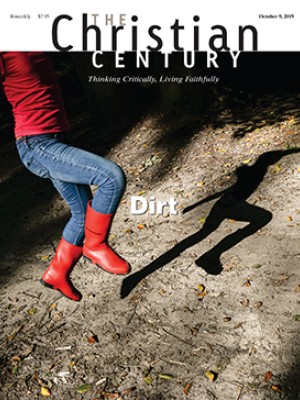New study finds aging populations might counteract secularization

Is there an inexorable trend toward secularization in the West because younger generations are less likely to affiliate with organized religion? Or does long-standing evidence that people become more religious as they age indicate that secularization trends may reverse in rapidly aging societies of high-income countries?
In what they say is the first systematic attempt to analyze this issue, three Russian researchers found that in all cases, individuals were more likely to be significantly more religious as they age. The findings may have critical implications for rapidly aging societies in more affluent nations.
Read our latest issue or browse back issues.
“It is mainly in the developed countries that global aging may have the most pronounced effect on slowing down the transition from religious to secular values or, possibly, even on some increase in religiosity,” the researchers said in the Journal for the Scientific Study of Religion.
Among the reasons religion is so important to older people, researchers note, is that religious beliefs and practices allow many to cope with later-life stresses such as the loss of a spouse or debilitating illness and facing death. As they lose a sense of control over their own lives, some also find religion offers reassurance that a compassionate divinity is looking out for them in their time of need.
Religious institutions also offer a source of social support, providing a network of friends to meet social needs, scholars have pointed out.
In the Russian study, researchers examined data from five waves of the World Values Survey from 1981 to 2014. The researchers measured changing attitudes in roughly ten-year periods, both by age, from 15 to 100, and by generation, from those born in 1890 to those born in 2000.
They found some evidence of the effect of secularization in that groups of people—or cohorts—raised in more secular periods showed statistically significant signs that religion and God were less significant in their lives. They also were less likely to attend services and had reduced confidence in churches. The effect of secularization “should in no way be neglected,” the researchers said.
But the researchers found the aging effect was much stronger in all nine measurements compared with the secularization effect.
Thus, as they aged, older individuals were even more likely show interest in attendance at worship, confidence in the church, and the importance of religion and God in their lives.
But the aging effect was also strongly tied to other factors such as belief in God, being active members in religious organizations, a perceived lack of freedom of choice and control in their own lives, and considering themselves a religious person.
The findings raise important questions about the future of religion in developed countries, which are on the leading edge of an expected explosion over the next 30 years in the percentage of the population age 60 and older.
In Japan, one of the countries most affected by aging, there are a number of indicators revealing a slowdown of secularization trends and even a resurgence of religiosity, the Russian researchers noted.
But more research needs to be done, nearly everyone would agree. There are many factors from immigration and birth rates to dramatic economic, cultural, or political movements that can influence demographic projections on religion.
For Americans, it will be particularly fascinating if baby boomers, so long the archetype of a generation known for challenging institutions, come to play a role in a religious revival.
It is not out of the question.
In summing up their study, the Russian researchers imply an important conclusion: aging populations in wealthier, developed nations “may slow down the transition from religious to secular values . . . and even lead to some increase in the general level of religiosity.” —Association of Religion Data Archives






